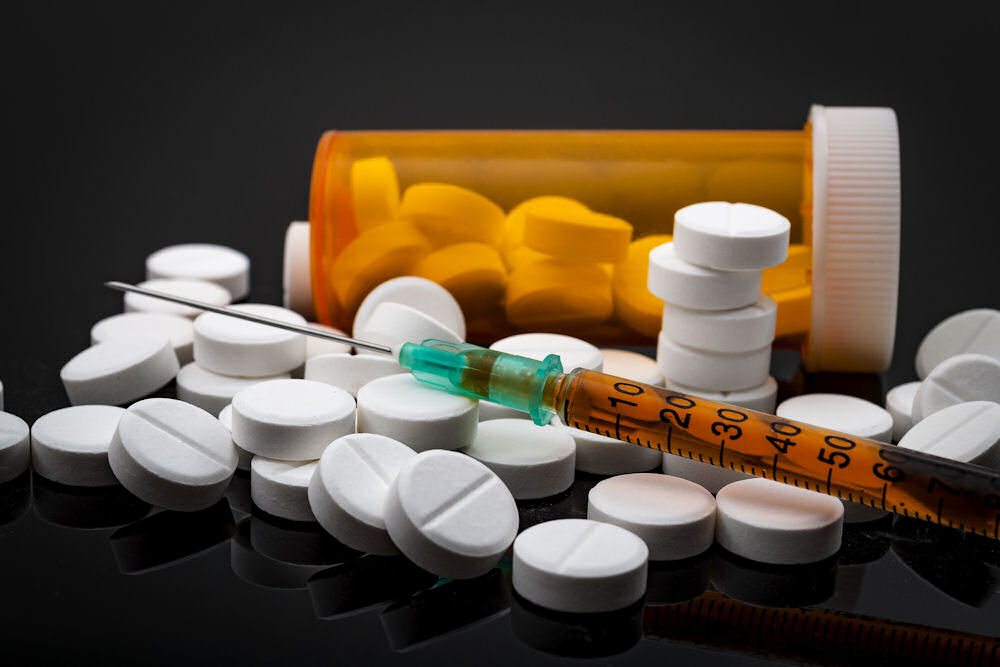Substance use disorders (SUDs) are a substantial issue among this nation’s military veterans and they are linked to many damaging results. Regardless of many attempts by the VA (Veterans Administration) and other agencies over the past decades to reduce problematic substance use, SUDs in veterans continue to rise.
One study of military personnel discovered that:
- 30% of completed suicides were linked to drug or alcohol abuse
- 20% of high-risk behavior deaths were associated with drug or alcohol overdose
- Among veterans going for first-time care in the VA system, 11% meet the standards for a diagnosis of SUD
- Alcohol and drug use disorder diagnoses are more common among male veterans
Why are Veterans More Susceptible to Substance Abuse?
There are several environmental stressors unique to military members that have been linked to an increased risk for the development of SUDs. For military personnel and veterans, these stressors include deployment, exposure to combat, and readjustment challenges after deployment.
The onset of SUDs can also develop subsequent to other mental health problems associated with these particular stressors, such as PTSD (post-traumatic stress disorder) and depression.
In addition, previous interpersonal traumas (histories of physical or sexual abuse in childhood) have been shown to bring about the risk of developing SUD among veterans. Some people join the military to escape harmful home environments. Age is also a predictor of SUD prevalence–(higher rates of SUDs are associated with younger age).
Which Substances are Veterans More Likely to Use?
Alcohol

A study of data collected as part of the National Survey on Drug Use and Health (NSDUH) found that veterans were more likely to use alcohol and report heavy use of alcohol in a one-month period. Furthermore, high levels of combat exposure present a greater risk of problematic alcohol use and those with high levels of combat exposure were more likely to take part in heavy and binge drinking compared to other military personnel.
The rising rates of problematic drinking are of special concern because alcohol is the fourth leading cause of preventable death in the general population of the United States. And alcohol-impaired driving accounts for 31% of all driving-related deaths. Studies also show that, among veterans, alcohol use increases the risk of interpersonal violence, lower quality of health, and death.
Opioids

Patients were also often prescribed two different opioids on average and had three different prescribers. The majority of these prescriptions were for oxycodone, hydrocodone, or codeine.
Moreover, a mental health diagnosis increased the likelihood of being prescribed an opioid. In particular, veterans with a diagnosis of PTSD or another mental health disorder were more likely to receive an opioid prescription than veterans without a mental health diagnosis. Those veterans with PTSD received higher doses and were likely to receive prescriptions for additional opioids or for sedative-hypnotics such as benzodiazepines (Xanax) or Z-drugs (Ambien). They are also more likely to receive an early refill.
Sadly, research also shows that those with mental health disorders are also more likely to develop an OUD and have numerous negative outcomes such as:
- Inpatient or emergency room admissions
- Opioid-related accidents
- Overdoses
- Violence-related injuries
Illicit Drug Use
The use of illicit drugs among veterans is about equal to civilian use. The huge majority of illicit drug use is marijuana use. According to (2020 NSDUH), The percentage of people who used marijuana in the past year was highest among young adults aged 18 to 25 (34.5%) compared with 16.3% of adults aged 26 or older and 10.1% of adolescents aged 12 to 17.
Smoking
Data further suggests that veterans are more likely to be smokers. Age-adjusted prevalence of smoking is higher among veterans than their similar civilian counterparts. Unfortunately, cigarette smoking accounts for 23% of cancer-related deaths among veterans who are former smokers and 50% of deaths among current smokers.
The 3 Most Common Mental Health Problems for Veterans
Things a veteran might have seen or experienced during their time in the military can affect long-term mental health, making it hard to transition to civilian life. The 3 most common mental health disturbances for veterans are:
- Post-traumatic stress disorder: This is a common disorder among veterans. Traumatic experiences like combat, disasters, assault, and sexual assault can lead to post-traumatic stress disorder. A person experiencing PTSD will often avoid situations that trigger memories, making the transition to civilian life more difficult.
- Depressive disorder: This disorder is characterized by a low mood that lasts for more than a few days and commonly happens after traumatic events. It can affect your sleep, appetite, and desire to interact with others.
- TBI (traumatic brain injury): This is a common deployment-related injury. It occurs when the brain is hit by an outside source and causes brain functions to be temporarily impaired or changed.
How Common are Dual Diagnoses Among Veterans?
It’s rare for a veteran to suffer with only SUD. Many times, veterans with SUD also have co-occurring psychiatric conditions such as:
- PTSD
- Depression
- Anxiety
- Adjustment disorder
Among veterans of Operation Enduring Freedom (OEF) and Operation Iraqi Freedom (OIF) diagnosed with SUD, 82% to 93% were also diagnosed with another co-occurring mental health disorder. Furthermore, more than 20% of veterans with PTSD also have SUD. Also, one-third of veterans getting treatment for SUD also have PTSD.
Veterans with a diagnosis of SUD were 3 to 4 times more likely to receive a diagnosis of depression or PTSD. In the wars in Iraq and Afghanistan, approximately 10% of returning veterans seen in a VA have a problem with alcohol or other drugs. The number of veterans who smoke nicotine is nearly double for those with PTSD compared to those without PTSD.
War veterans with alcohol problems and PTSD tend to binge drink. (Binge drinking is drinking 4 to 5 drinks (or more) in a short amount of time (1 to 2 hours). The prevalence of dual diagnoses for OEF/OIF veterans mimics findings from studies on Vietnam-era veterans.
The Connections
The study noted that individuals with multiple diagnoses of SUDs and co-occurring disorders displayed more severe symptoms and worse treatment outcomes. Veterans with dual diagnoses were also more likely to experience homelessness and receive VA disability benefits.
Mental health disorder symptoms, such as those associated with PTSD and depression, can also foreshadow or increase drug and alcohol misuse. Similarly, psychological distress can increase the craving for the substance. This means that there is a crucial need for effective treatments that treat not only SUD but also co-occurring disorders.
Substance Use and Female Veterans
Rates of problematic substance abuse among female veterans have been increasing recently. It is thought that some female veterans may feel uncomfortable getting SUD treatment within the VA. They may feel it’s difficult to disclose substance use to healthcare providers because of the perceived stigma and shame connected to being a female substance abuser.
In addition, female veterans with SUDs have higher rates of childhood sexual abuse, military sexual trauma, and domestic violence than female veterans without SUDs. Also, women with PTSD have a particularly high risk of developing substance-related problems.
Specialized SUD treatment and gender-based treatment may increase treatment use, attendance, and comfort for female veterans.
SUDs and Medical Disorders
Veterans with SUDs also often have co-occurring medical conditions such as:
- Obesity
- Sleep disturbances
- Physical injuries
- Chronic pain
- Lower quality of life
- Poorer quality relationships
- Higher levels of aggression
It was also shown that female veterans with SUD are more likely to have reproductive and urinary problems than those without SUD. Male veterans were more likely to be diagnosed with digestive and circulatory system diseases than veterans without SUD.
Treatment Options
No matter what you are experiencing, there are treatments available. Evidence shows that treating co-occurring substance use and mental disorders at the same time works most effectively when both conditions are treated.
Evidence-Based Therapies
Cognitive Behavioral Therapy (CBT): Using a problem-solving approach, CBT helps veterans with SUDs recognize their dysfunctional thinking patterns and helps them develop more balanced and helpful thoughts about themselves, other people, and the future.
Motivational Interviewing (MI): MI helps veterans focus on conversations with their therapist to recognize and strengthen personal motivations to change. It examines the reasons behind the desire to change.
Trauma Psychotherapy: This is the most effective treatment for PTSD, a leading cause of SUDs for veterans. Trauma-focused therapies use different approaches to help people deal with their traumatic experiences. They may include:
- Prolonged Exposure Therapy (PE)
- Cognitive Processing Therapy (CPT)
- Eye Movement Desensitization and Reprocessing (EMDR)
The most effective treatments for SUD include:
- CBT
- Relapse prevention training–Learning skills to recognize triggers and prevent relapse.
- Contingency Management (CM)–CM is a type of behavioral therapy in which people are “reinforced” with tangible rewards for evidence of positive behavior such as clean drug tests or attendance at meetings.
Pharmacotherapy (Medication)
In addition to behavioral treatment, medication-assisted treatment (MAT) can play an essential part in treating and managing SUDs. SUD is a disease that needs treatment, medication, and counseling, just like any disease such as high blood pressure or diabetes.
Medications can be used to help reduce withdrawal symptoms that may be a trigger to relapse if not treated. They can also be useful in reducing cravings, which is also a strong trigger for increased substance use or relapse after treatment. These pharmaceutical options include medications that can prevent relapse, reduce cravings, and reduce the risk of death due to substance abuse.
For Alcohol Use Disorder
There are three medications approved by the US Food and Drug Administration (FDA) for AUD:
- Naltrexone
- Acamprosate
- Disulfiram
For Opioid Use Disorder
Behavioral therapy combined with medication (MAT) is the most effective treatment for OUD. People who undergo therapy and also use MAT are more likely to stay in treatment and see improvements in their ability to function socially.
The FDA has approved these medications for the treatment of OUD:
- Methadone
- Buprenorphine
- Naltrexone
- Injectable naltrexone
For Tobacco Use Disorder
The following medications are approved and effective for treating tobacco use disorder:
- Nicotine replacement therapy
- Bupropion
- Varenicline
There are no FDA-approved medications for treating cocaine or marijuana use disorders.
Section
Westwind Recovery® is On Your Side
Have you gone through the battle but now you’re losing the war with substance use? Is it someone close to you? It doesn’t have to be this way. Westwind Recovery® is a comprehensive rehab in Los Angeles, CA, with effective treatment programs for everyone who is serious about recovering and living their best life.
You understand teamwork, right? At Westwind Recovery®, you will have a recovery team dedicated to your success. Our addiction specialists can help you put together a strategy for recovery that treats your needs at the level you need. Among many other programs, we can offer:
- Supervised detox
- Dual diagnosis treatment
- Residential treatment
- Outpatient treatment
- Trauma therapy
- Behavioral therapies
- Adventure therapies
- Chronic pain management
You owe it to yourself, your family, and everyone who cares about you to explore what Westwind Recovery® can do for you. Contact us today to get started.

Dr. Deena is the Chief Clinical Officer of Westwind Recovery®, an award-winning outpatient treatment center in Los Angeles where she oversees the clinical and administrative program and treatment methods. Dr. Deena is a doctor of psychology and licensed clinical social worker since 1993. LCSW #20628. Originally from the East Coast, Dr. Deena has worked running treatment centers, worked as a therapist in psychiatric hospitals as well as school settings and currently has a thriving private practice in the LA area. Dr. Deena has appeared regularly on the Dr. Phil Show as an expert since 2003. She has also been featured on many other TV shows, podcasts and has contributed to written publications as well as podcasts.





